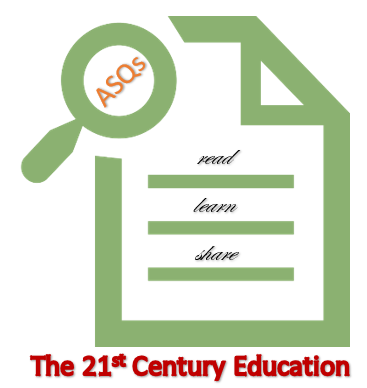
Education 4.0 is a vision for the future of education – which responds to the needs of the Industry 4.0 because today’s university graduates lack the tomorrow’s internet-physical job skills. It is a “purposeful approach to learning that aligns itself with the emerging fourth industrial revolution” (Suvin,2020) rather than being a continuous awash with yet another contemporary construct that is there for blind inclusion in learning and teaching for which Bangladesh Education System is so well known.
Scenario in Bangladesh
In Bangladesh, institutions, teachers and the concerning stakeholders are constantly instructed to transform and reform to loyally adhere to the instilled regime’s proposed educational system. Consequently, they are ordered to use new curricula, new teaching strategies, and new assessments to prepare students for the new state standards. To this end, veteran teachers often ironically smile their way out when told to do this or that. They also soliloquize about another trendy pendulum that is there to swing till the end of the regime’s tenure. As a survival tactic, they close their classroom doors, and quickly go about their business. But the questions that arise are – how are the educators to isolate the constantly encountering reform proposals? How are they to adapt to the contemporary needs for such reforms? Do they require adaptability screening? Do they need feasibility testing? Should they be given migratory training or not? Do the institutions require renovation, procuring of newer accessories or specialist group of teachers or not?
The perception
There is a general perception that online or internet-physical education is what makes up the Education 4.0. Contrarily, it is actually a misconception that implores for scholastic scrutinization. Since with all its paraphernalia educational practices that are not dependent on any of the face to face prerequisites only partly form the basic twigging infrastructure needed for Education 4.0 but not the entire construct. Among the many subdivides, computer, data, internet, and curriculum are the chief objects that are purposefully set to approach the learning and teaching in the future. Parallel with the Industrial Revolution 4.0 , Education 4.0 is here to induce advanced technology to automate all the traditional academic practices. Just as the first Industrial Revolution had all the man replaced with steam engines and machines in the industries and factories back in the 18th century, the second Industrial Revolution had the production advanced into mass production in the 19th century, and the third Industrial Revolution had the machines fed with crucial data, powered by nuclear energy and turned into smart gadgets in preparation for automated production in the 20th century, the fourth Industrial Revolution is a 21st century construct that is here to trigger social, industrial and economic automation through shifting to renewable energy, acceleration of digital technology and the Internet of Things. It is all encompassing and pervasive in approach that is taking on like the forest fire causing hevoc and yet signifying advancements, progress and prosperity at large. This era demands for anything but manhandled production, solution or outcomes. In other words, it is a revolutionary stride that empowers us with the AI, advanced technology, renewable power and automation to play god or nearly so wherein education is the indispensable key.
Why Education 4.0?
Education has always been a constantly transforming but integral part of our lives. Though prehistorically we know adults were trained to acquire the knowledge and skills deemed necessary in their society, education continued to reform from oral and imitative endeavor to scientific inquiry. In its early days, storytelling passed knowledge, values and skills from one to another generation. Soon cultures adapted the latest learning techniques to extend their knowledge beyond imitative skills. They began to offer readily learnable skills through formal education in proper schools. Then the need for archiving the knowledge paved the way for libraries that furthered even more formal education. In addition, the realization that education must not be limited to religious and military skills only gave rise to the Medieval and Renaissance universities where freedom of inquiry was encouraged. As a result, today’s education necessitates not only scientific but also intellectual inquiry. Accordingly, this becomes vividly perceptible about education that it has relentlessly kept reforming for improvement. It improved from storytelling to scientific inquiry, from objective learning to subjective learning, and from face to face to online and distance learning.
Time is still passing with which more advanced learning needs will emerge, such is the case of education 4.0. It is a revolutionary stride from knowledge based education to skill based education. Moreover, it is much like what education used to be in prehistory i.e., value based transference of knowledge needed for the society and survival. Similarly, education 4.0 is a new construct emphasizing learning of skills needed for the Industry 4.0 jobs and coexistence with AI interactive machines.
What is Education 4.0?
To define Education 4.0, one would say that it is a stage 4 revolution in education. But that cannot suffice the inquiry because it is wider in scope and concept. In order to understand what education 4.0 is we need to primarily understand Industry 4.0 which triggered the coinage of the term Education 4.0.
Industry 4.0 claims Natarajan (2020), “gained tracktion when a German government memo released in 2013 used the term “Industry 4.0.” That memo is said to have outlined a full-fledged plan to completely automate the manufacturing industry through eliminating human intervention. Hence it can be deduced that Industry 4.0 is an upgradation from traditional manufacturing to digitally automated manufacturing. The initial goals were (a) automation (b) improvament of manufacturing and (C) production optimization. However, Industry 4.0 has become more robust a concept than what has been so far discussed here. It is much beyond the factory, automation and data exchange.
Education 4.0 goes parallel with Industry 4.0.
To fully understand the industry 4.0 let’s have a dig into the history of Industrial Revolutions not-only for the pedantry delights but also the scientific inquiry. For a fact, Industry 1.0 empowered the factories and transportations with the steam engines in 18th century. Industry 2.0 gained momentum in 19th century to achieve mass production and electric power. Next, Industry 3.0 of the 20th century made way for electronics, factory and manufacturing to adapt to information technology and data networking. Finally, Industry 4.0 is here to use the information and death to completely automate everything around us. For this, technologies are evolving at an exponential pace. Scientists are experimenting Artificial Intelligence, Robotics , Internet of things, automated vehicles, bio and nanotechnology, 3D printing and energy storage. All of which are being withheld for permission to launch and market in the world markets. In doing such, Industry 4.0 is also perceived as the Disrupting Revolnotion that is impacting everything we know – business, governance, and people and therefore education, too.
“So, Education 4.0 is a revolution for education that propels Industry 4.0.”
— A.S.M. Shamim Miah
So, Education 4.0 is a direct response to the needs of Industry 4.0 (Fisk, 2017) . In other words, education 4.0 is a ramp for Industry 4.0. Where “humans and technologies combine to enable new possibilities” (Natarajan, 2020). Education 4.0 is ” a desired approach to learning that aligns itself with the emerging fourth Industrial Revolution”(Everything You Need to Know About Education 4.0, 2019). With Education 4.0, there’s a cultivating peer to peer learning atmosphere with students being able to learn collaboratively and from each otherover the internet-physical. The role of teachers is that of facilitators. Also, the curriculum and learning outcomes focus on complex 21st century skills including problem solving, critical thinking, creativity, people management, teamwork, collaboration, emotional intelligence, decision making, service – orientation, negotiation, and cognitive flexibility.
References
Das, S., Kleinke, D., & Pistrui, D. (2020, June 20). Reimagining Engineering Education: Does industry 4.0 need … Researchgate. Retrieved November 14, 2021, from https://www.researchgate.net/publication/339983822_Reimagining_Engineering_Education_Does_Industry_40_Need_Education_40.
Fisk, P. (2017, January 25). Education 4.0 … the future of learning will be dramatically different, in school and throughout life. Peter Fisk. Retrieved November 14, 2021, from https://www.peterfisk.com/2017/01/future-education-young-everyone-taught-together/.
James, F. (2019, November 14). Everything you need to know about education 4.0. QS.com. Retrieved November 14, 2021, from https://www.qs.com/everything-you-need-to-know-education-40/.
Suvin, C. (2020, September 30). Why should higher education institutions focus on education 4.0? Creatrix Campus. Retrieved November 14, 2021, from https://www.creatrixcampus.com/blog/Education-4.0.
Natarajan, D. R. (2020, January). Preparing for education 4.0. EducationWorld. Retrieved November 14, 2021, from https://www.educationworld.in/preparing-for-education-4-0/.
